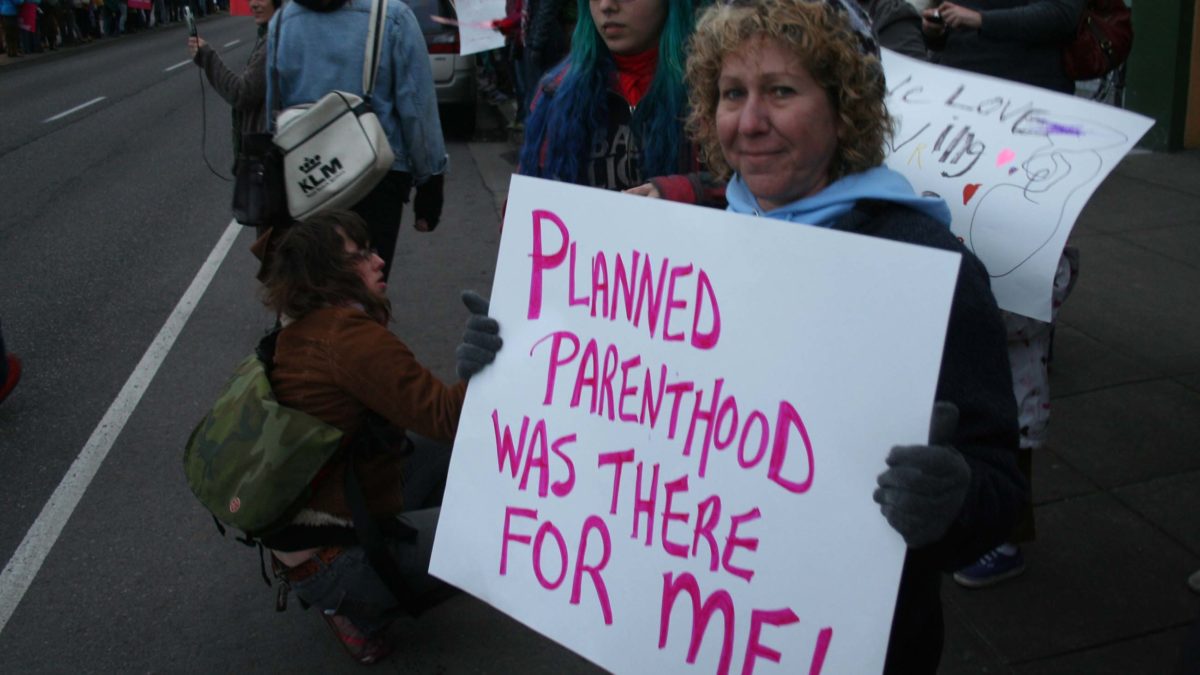Abstracts: Ice, Water, Nocebo Effect, and More
• Bangalore — the center of India’s Silicon Valley — is predicted to run out of water by 2020. Toxic runoff pollutes the surrounding lake, and the ground water is drying up. And Bangalore may not be the only tech hub in crisis. (Wired)

Republicans in Congress narrowly passed a health care bill that, among other things, blocks federal funding for Planned Parenthood.
Visual: Sarah Mirk/Flickr/CC
• The GOP health bill passed the House with a narrow vote on Thursday. The bill would cut Medicaid for low income people, allow states to secure waivers for other Obama coverage requirements, and block federal funding to Planned Parenthood. The bill faces an uncertain fate in the Senate. (Associated Press)
• One scientist is waging war on aging by reframing it as an engineering problem. He’s developed a divide-and-conquer approach to attack seven known independent factors, from corrosive mitochondrial mutations to cell loss. (Vox)
• A study just published by Scientific Reports gives more evidence that ketamine, which is sometimes prescribed for pain, is also an effective antidepressant. (Tonic)
• Despite the Trump administration’s initial proposed budget cuts, Congress approved a $2 billion increase for the National Institutes of Health for the 2017 fiscal year. And the overall budget for federal spending for R&D got a 5 percent boost. The Senate and House expect lawmakers to vote on the appropriation bills this week. (Science)
• When pulling out her honey screens for the next season, a molecular biologist cum recreational apiarist found that they were full of honeycomb wax moth caterpillars. While these pests are known to decimate hives, she soon found that the caterpillars also chewed through plastic shopping bags at a record rate. Her team hopes to isolate the polyethylene-eating enzyme from the moths for further study. (The Wire)
• Last month’s controversy around the safety and side effects of statins — widely considered one of the safest and most successful medications on the market — became a case study of the “nocebo” effect. If a disguised sugar pill provides patients with relief, warnings of fictitious side effects influence a patient’s reaction to a drug, too. A study published in the Lancet this week demonstrated that when both patients and doctors knew that a patient was taking statins, they were 40 percent more likely to report muscle-related problems (even if they had no complaints when taking a statin unbeknownst to them the previous year). (The Guardian)
• Say cheese! Both at home and abroad, Americans have a reputation for smiling — a lot. One reason might be a long history of immigration and diversity. Without a shared language, people rely on nonverbal communication to build trust. (The Atlantic)
• As the Arctic continues to melt, researchers map ice-breaking cargo ship routes for ships that can sail through up to four feet of ice — a reality for 2030. And by 2050, these ships might be obsolete, as climate scientists predict that enough ice will thaw to make ice-free voyages in the Arctic the norm. (New York Times)
• A clinic in San Antonio finds that “it takes a village” to help bring down stubbornly high blood pressures. (NPR)
• And finally, a graphic to illustrate that we need 1.7 earths-worth of resources to make our current levels of consumption sustainable. (Washington Post)










